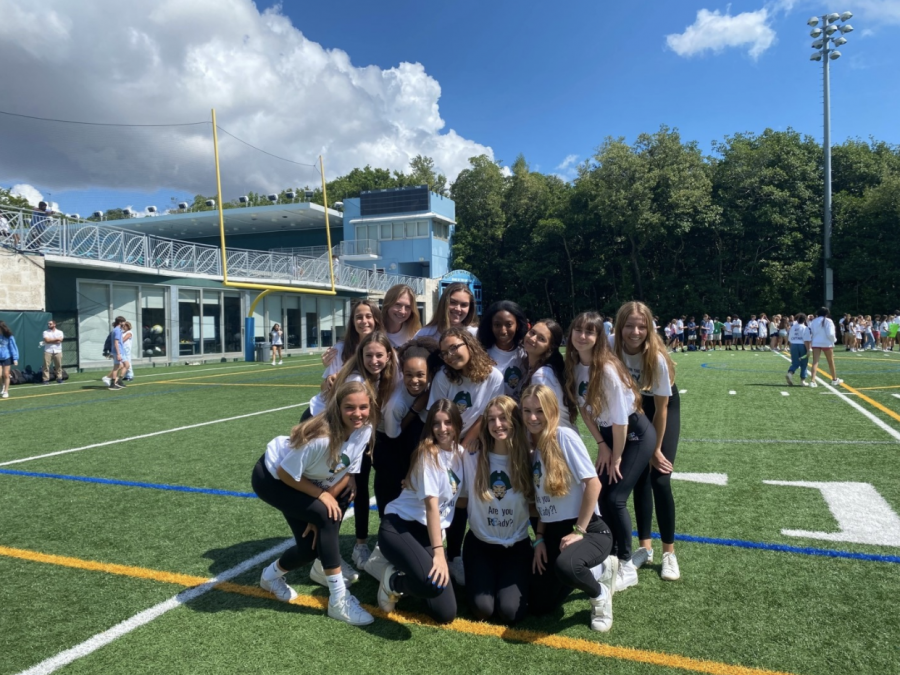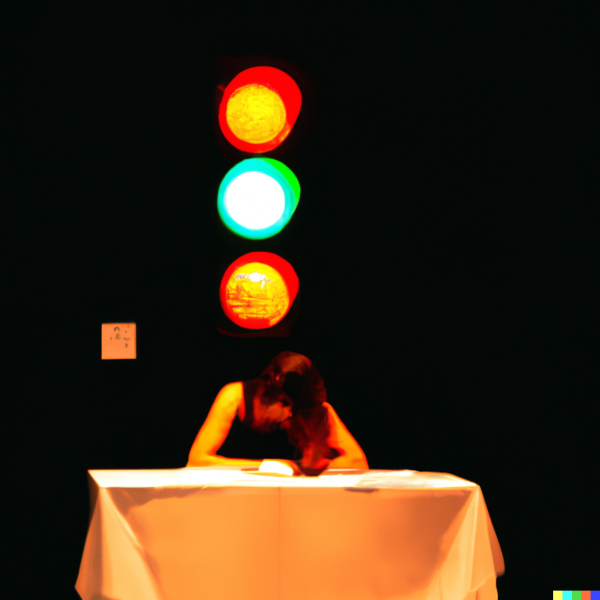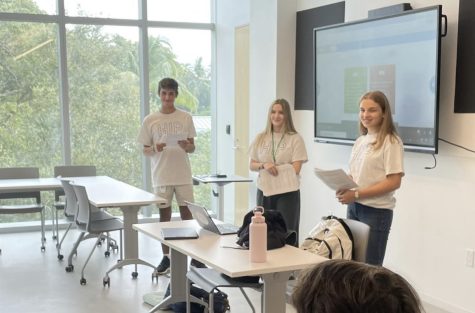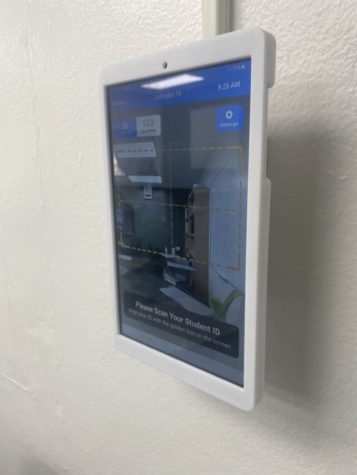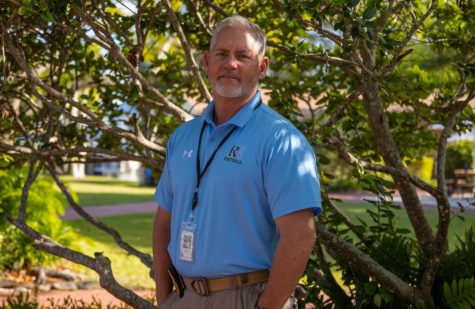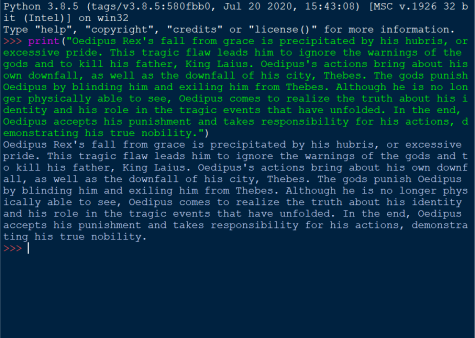Between Art and Sport: RE dance team now earns students PE credit
The Dance Team celebrating after a recent pep rally.
After a multi-year campaign, the Ransom Everglades administration has now recognized Ransom Everglades’ dance team as an activity that grants Physical Education credit. Participants can now earn 2 units of credit by completing a year’s worth of service to the team.
Co-captain Natasha Rodriguez ‘23 noted that the team has pushed for approval for a sports credit throughout her high school career. “I remember when I was a freshman, the captains were constantly working for that goal, and they couldn’t get it done for various reasons.”
Ms. Desiree Masucci, the coach of the dance team, further explained how the process started back in 2017. “It was always an idea that we wanted it to count for some form of a credit, especially for the amount of practice and effort that we put in,” Ms. Masucci said.
However, co-captain Kira Oglesby ‘22 explained that administration initially met the dance team’s request for sport recognition with backlash due to the team’s shorter and less frequent practice times. In response, the team changed their practice schedule from two to three days a week. Additionally, they extended their practice times. “They used to be only an hour long, and now they are around an hour and 45 minutes to almost 2 hours long,” Oglesby said.
Ms. Masucci walked through the process of getting the sports credit approval after the team formally changed practice times. “The process started with talking to each of the tiers of administration starting with my department coordinators and department chair,” Ms. Masucci explained. Later on, the athletics department, and eventually the Academic Council, took up the idea.
But the faculty members Ms. Masucci referenced were not the only people at school in support of the dance team’s endeavors. The team’s recognition has garnered support from many students outside the team. “[Dance] requires a lot of exercise just like any other sport,” said Alejandra Sarmiento ’23 said, So why shouldn’t it be considered for a sports credit?”
However, what Ms. Masucci wanted to achieve through her endeavor was “to get [the administration] to understand how much these girls are dedicated to the dance team.” The dance team strived not only to earn sports credit.
“There’s a sense of sportsmanship, teamwork, and sisterhood that they have. I just always wanted all of that to be recognized, and I always thought it was worthy of giving them credit for,” Ms. Masucci added.
The idea slowly came together after the team extended its practice hours. Ms. Masucci expressed her gratitude towards the “instrumental people who helped put this together, including Coach Goff, Dr. John King, and Ms. Rachel Rodriguez,” all of whom strongly supported the initiative.
But just as things were starting to kick off, COVID struck. “We were supposed to be approved for a credit last year, but everything went downhill due to COVID,” Oglesby recalled. Before the administration granted the team sports credit, the pandemic hit, halting practices and performances. Had COVID not occurred, the team would have gotten approval for a sports credit by this time last year.
Once the pandemic subsided, the dance team practiced as it did pre-pandemic, only now with the sports credit approval in their hands. “We finally got out of COVID, so we could see the dance team’s approval for a sports credit as a potential, and I’m very grateful for that,” said Ms. Masucci.
Oglesby noted that the lack of a competitive element within the team was another factor that prevented their approval for sports credit, at least at first. “It took so long because we don’t compete, and almost all other sports either do games or tournaments to compete against another team,” Oglesby said. Within the world of dance, however, competing is no easy feat. According to Oglesby, dance competitions are significantly different from sports competitions. “They take place only on weekends, cost a lot of money, and would require us to have a more reliable space to practice in,” she added.
During last year’s era of tighter COVID restrictions, the team practiced in both the middle and upper school outdoor tents in the uncomfortable Miami heat. Now, the team has switched from practicing in the auditorium to the middle school dance studio. This will most likely become their reliable rehearsal space. With a dependable practice space, the team may even more easily overcome the obstacles of funding for competition, as they can train more effectively in a consistent space.
Yet practice spaces and funding are not the only things stopping the dance team from competing. Ms. Masucci expressed her hesitations towards competition. “It’s not that I’m against competition,” she said. “It’s just that I would love to keep the idea of doing something without a need to be better than someone else.”
To Ms. Masucci, the dance team is all about working in a team environment to build lasting relationships, rather than crushing the competition. Nevertheless, she is not completely opposed to the idea, especially if competition becomes a required element of activities counting for sports credit. “I’m open to seeing where this goes and what the need will be as the years go by,” Ms. Masucci said.
The dance team’s recognition also marks the first time in some years (at least since the end of RE’s cheer program) that the school has given sports credit for an activity at the intersection between art and sport. “We’re one of those unique activities that overlap the two,” Rodriguez noted. While many other schools categorize dance activities as either an art or a sport, Oglesby takes pride in RE’s dance team for embodying both.
Oglesby also noted the importance of the dance team staying on track in the eyes of the administration, especially with their new privileges. Since dance is a new athletic activity that incorporates artistic elements, it will take more effort for the team to be viewed as an activity with a similar caliber of athletic ability. “All eyes are on us because the administration wants to make sure that the dance team can really be considered a sport,” Oglesby said. “We have to be extra cautious with decisions we make when it comes to our music choice, choreography, and costumes to show that we are actually accomplishing things during our practices and not goofing around.”
For now, the dance team is celebrating its new recognition, but its members were quick to note that this was never the end all be all. “The beauty of the team is that for the last 4 years, the students have not received any form of credit; it’s all completely voluntary,” Ms. Masucci said.
“I personally don’t need a sports credit,” Rodriguez explained. “I really just do it because I love it, and I’m happy to be a part of it.”
Dhilani Premaratne ’22 is a staff writer for The Catalyst. She specializes in news and features.


